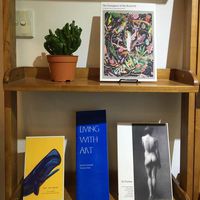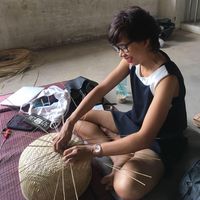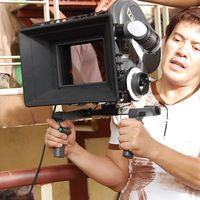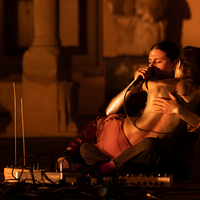Virtual360 Konnect | Co-dreaming, Maintenance, and the Body: A Dialogue
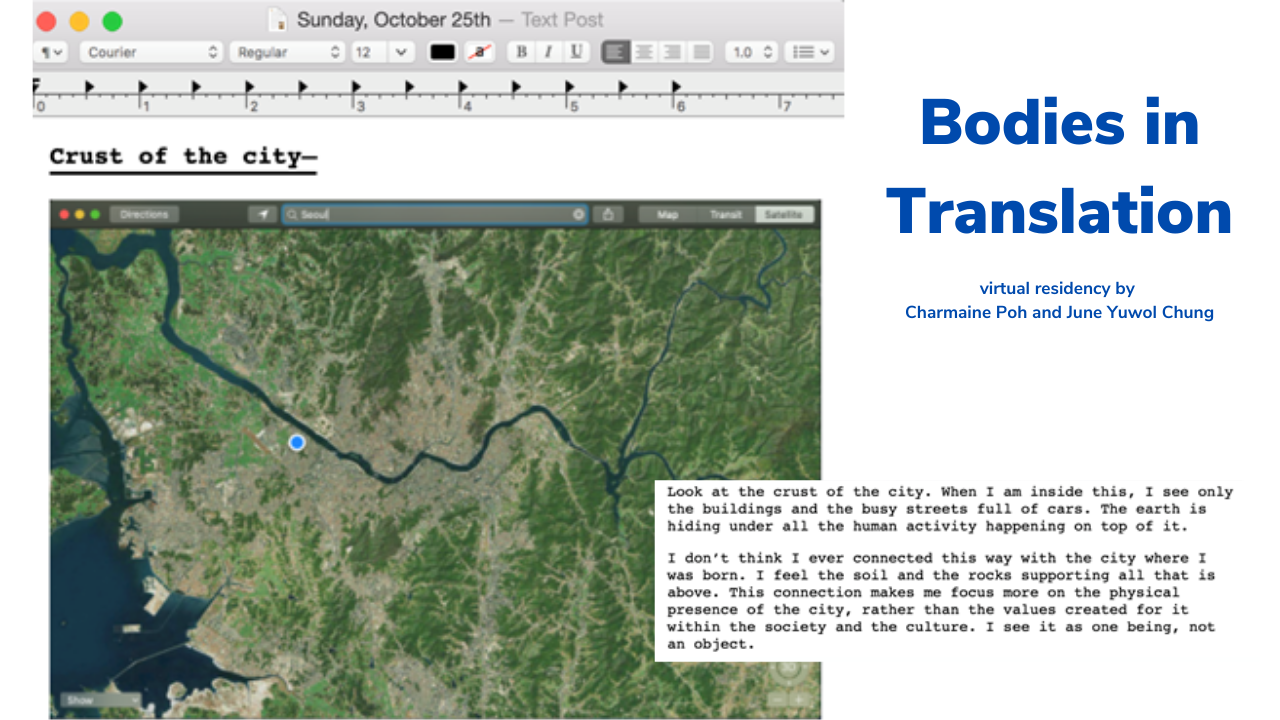
Excerpt of Week 3 of Bodies in Translation : Mapping. From June to Charmaine.
Throughout the Virtual360 Konnect - Emerging Arts Leaders Virtual Residency Series, Charmaine Poh and Yuwol June C. created an archive of memory made up of media fragments, titled Bodies in Translation. Each week signaled a prompt, forming a grounding ritual for each artist to materially experience their spaces, their bodies a vessel for each other, and in turn for themselves. The first week looked at touch, the second week looked at language, the third week looked at the structures that form our lives, and the fourth and final week looked at the environments they were both inhabiting in Singapore and South Korea respectively. The following dialogue can be read as an epilogue to the conversational, collaborative archive.
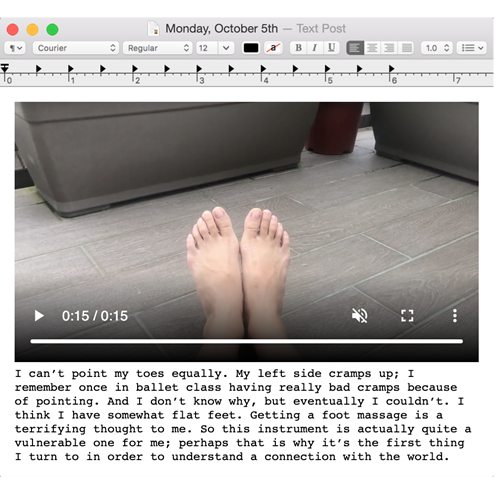
Week 1: Touch. From Charmaine to June.
Charmaine Poh (CP): We’ve been talking about the body a lot in our little project. How do you think you’ve navigated thoughts around it during our time together?
June Yuwol C. (JYC): It definitely had effects on my perceptions during these times. The perception of being present, my existence within languages and also the rituals and surroundings. Overall, it was a good exercise.
CP: Beyond the manifestation of care, engaging with our body has felt like maintenance work, to also bring to mind maintenance art: this idea of repair, mending, healing, in the midst of the pandemic.
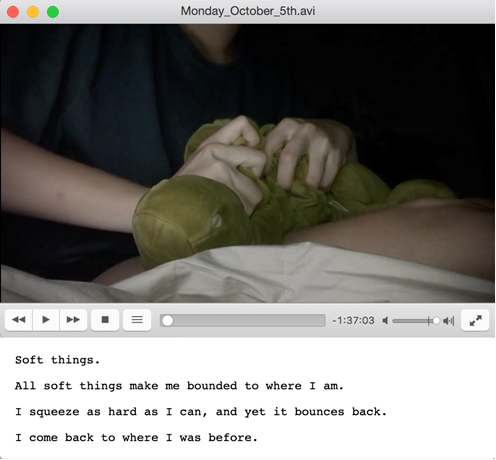
Week 1: Touch. From June to Charmaine.
JYC: Yes, especially when you have more time alone, you realise more about your own self. I felt the connection of my physical presence as well as the rest of it, which some might refer to as soul. I remember having strong dreams during the beginning of the pandemic. I thought maybe this is a reaction to the current situation, how I need to be balanced and mended. Our subconsciousness seeks to resolve it in the dream.
CP: That makes a lot of sense. When things feel out of control, we are asked to consider, without judgment, the most immediate details in our world, in a bid to ground us in being present. Each week, as I did the exercises - observing how I held my body up, how I stood, how I walked, how I organised my life, how I used my voice - I felt human once again. Not just data. Do you think we’re in charge of our life scripts?
JYC: I think partly yes, partly no. There are some moments that I would feel like this happened because it had to happen, as well as many moments that I genuinely strived for it. However, still, there are so many factors that are outside of us. I think we are in charge of the writing part, but maybe not so much about the setting and budget and such! This might sound weird, but sometimes I feel like I am in a dream. For me, our project also felt like a good lucid dream. It may have been because it was virtual, but also how our weekly prompts led us to the ways of grounding and healing as we each came back to our own realities. Almost like co-dreaming. I wonder if you can relate to this. Do you often dream as well?
CP: The idea of co-dreaming is really beautiful. I wish we could do that all the time. I often don’t remember my dreams. I sometimes have the habit of sweeping overwhelming sensations into a corner of my mind, instead of letting them surround me. We cope with life differently, I guess.
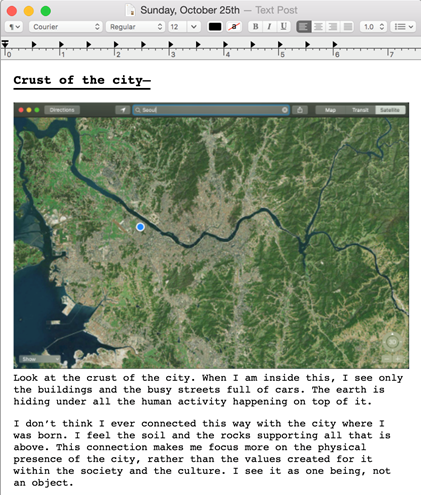
Week 3: Mapping. From June to Charmaine.
JYC: I agree. We all have such different responses to deal with things. And for me, it was nice to share this specific time with you, learning and exchanging our ways of dealing. At this point, I am wondering a lot about the future. I think it’s natural, as it feels like something new is coming. Is the future in your eyes optimistic or the opposite? I tend to have a rather post-apocalyptic imagination and the normal ways of the past both at the same time. I don’t know if either of them are optimistic or pessimistic anymore.
CP: I adhere to pessimism of the intellect, but optimism of the will, as some famous man [Antonio Gramsci] once said. How do you think your practice has changed as a result of this?
JYC: I think I started to write a lot. Ideas and thoughts and such. Before, I was looking for something from the outside, but now I face myself more. At some point, I felt like I should stop doing what I used to do. I felt like something will drastically change and nothing will ever matter anymore. Quite dramatic. But fortunately, the new normality comes very gradual and subtle. I would eventually adjust to it. Me just keep on being me. Did you feel some difference yourself as well? What are your thoughts these days?
CP: My thoughts have been influenced by the reality of living out our lives virtually. I’m thinking about less localised modes of being, and inter-connectedness. But I’m not really pushing anything forward with as much force as before. I’m letting thoughts percolate, and am biding my time. I’m trying to be gentle with germination. I think I can do that much.
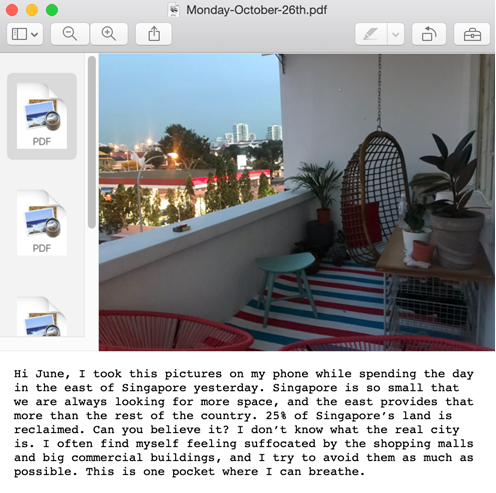
Week 3: Mapping. From Charmaine to June.
What both artists had gathered during the time of the residency will remain virtually forever as a documentation of the way two people attempted to match their rhythms over the course of this global shift. It was a lesson in how to stay together while physically distanced, a time of regeneration and disclosure.
As the pandemic rages on, both artists call onto the need to rewire minds to this new normal, to create special ground in the midst of this vulnerable moment.
This article is part of a series of articles written by the participants of Virtual360 Konnect - Emerging Arts Leaders Virtual Residency Series, an online cultural exchange and capacity building initiative developed by the Asia-Europe Foundation (ASEF) and the ASEAN Foundation through KONNECT ASEAN. Over a period of one month, 20 emerging art leaders from Korea and 5 countries of the ASEAN region (Brunei Darussalam, Indonesia, Malaysia, Myanmar, Philippines and Singapore) collaborated in pairs on the theme of international cultural exchange in the Covid-19 era.

